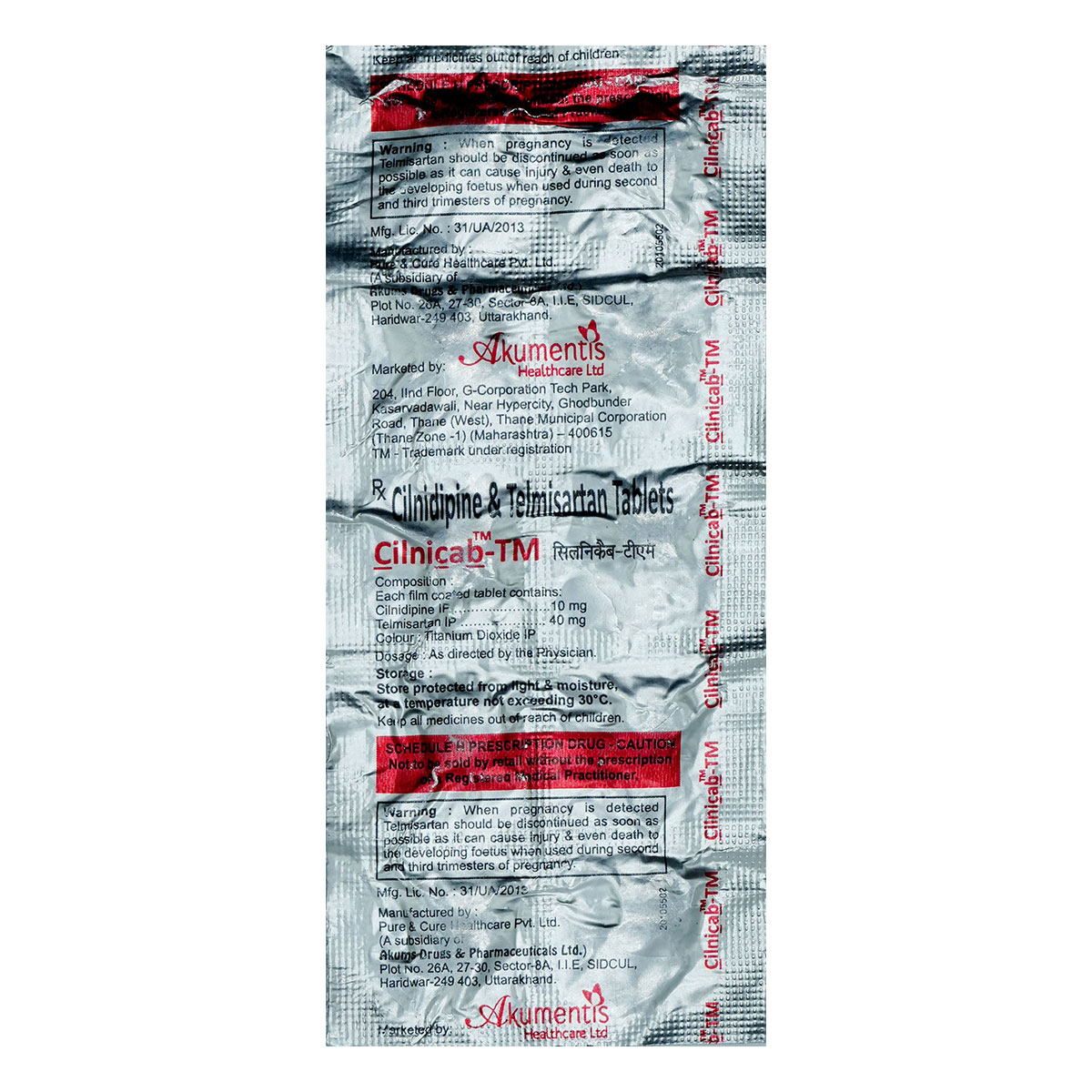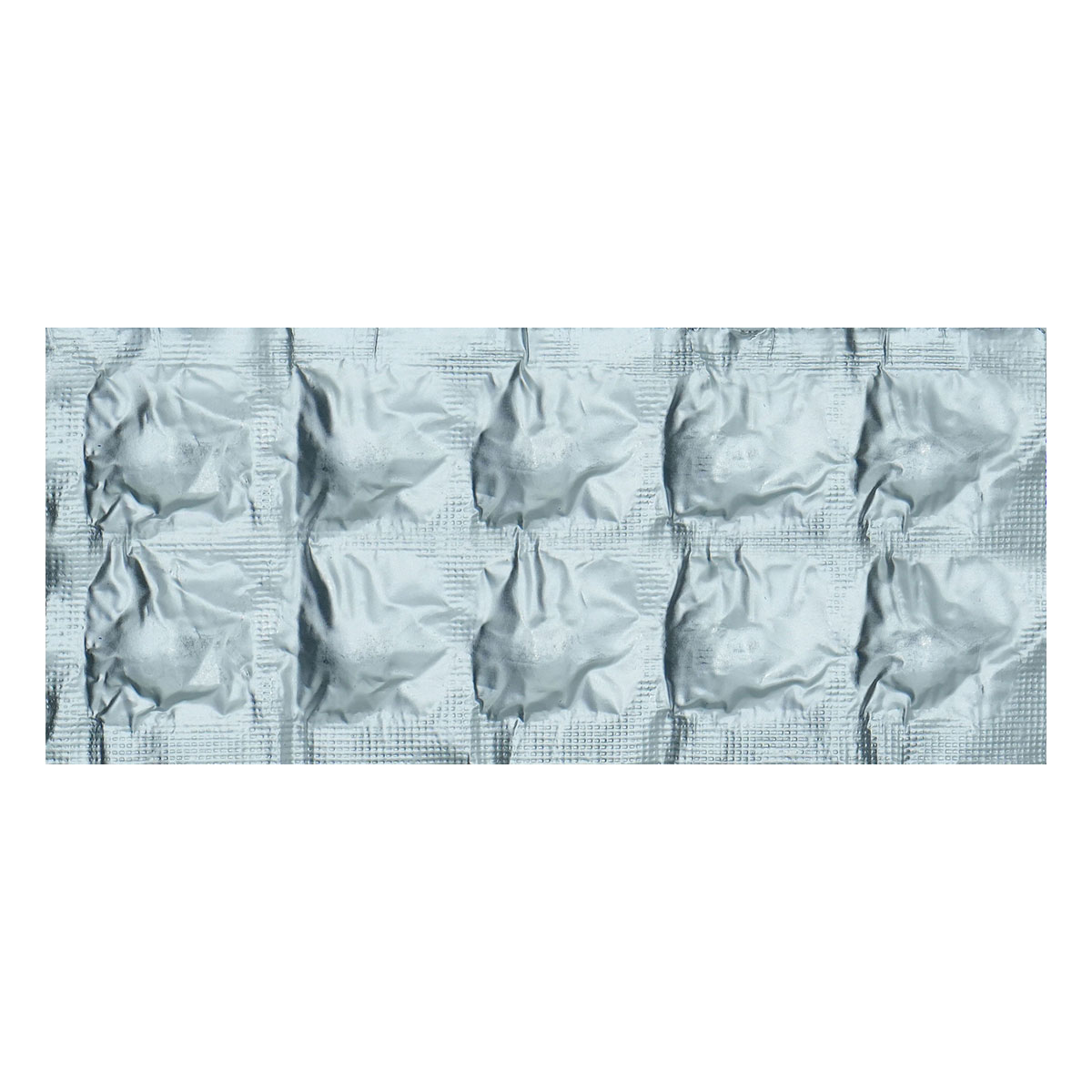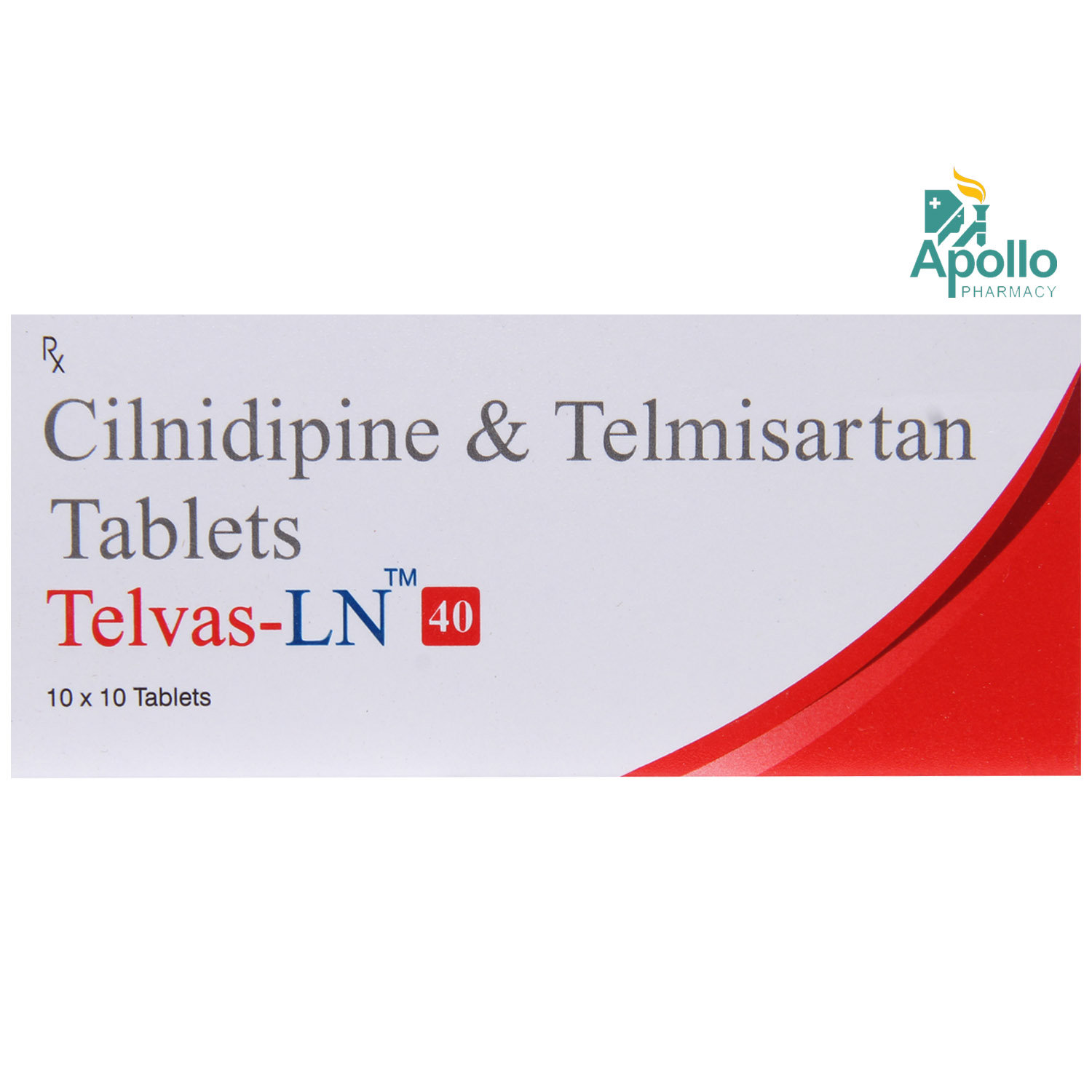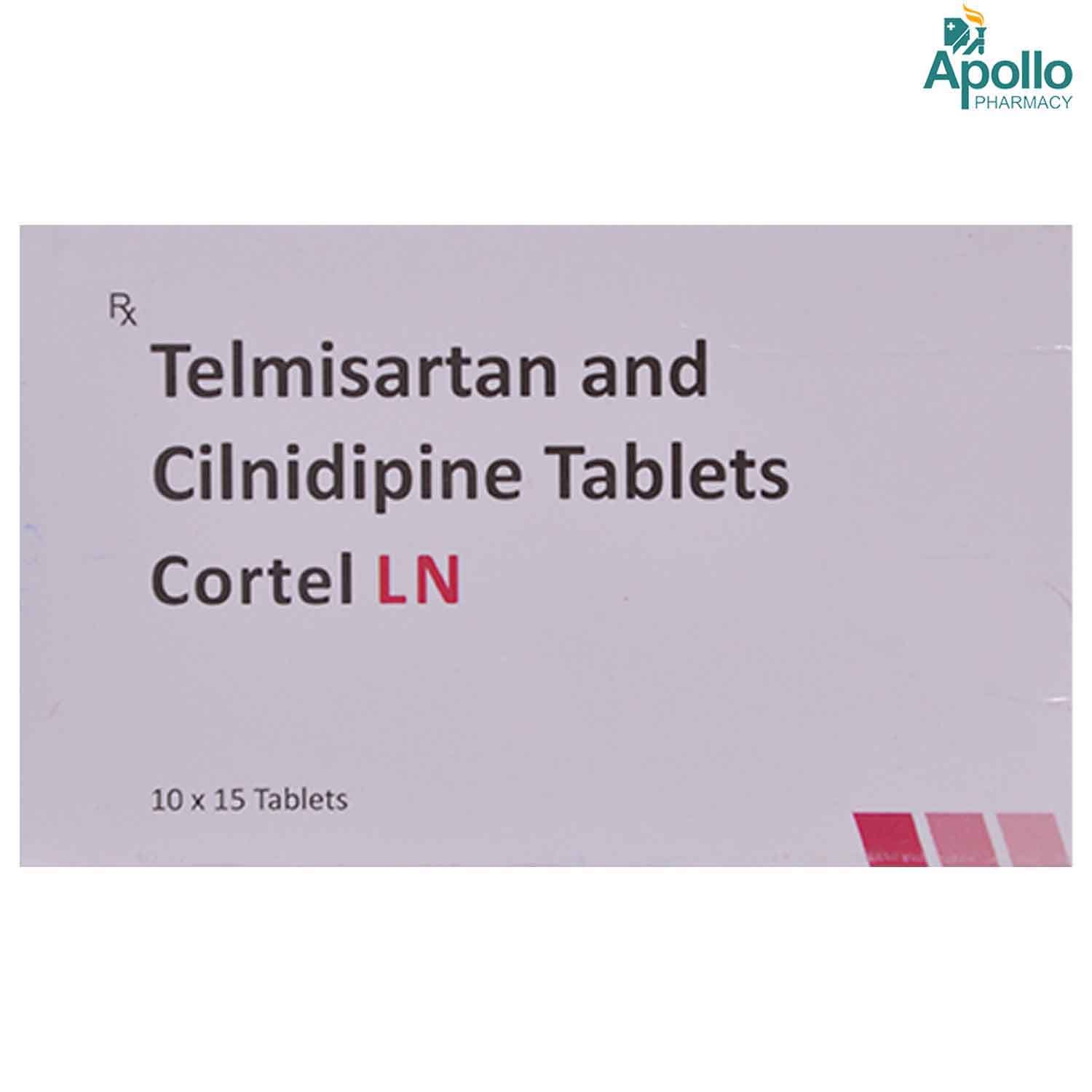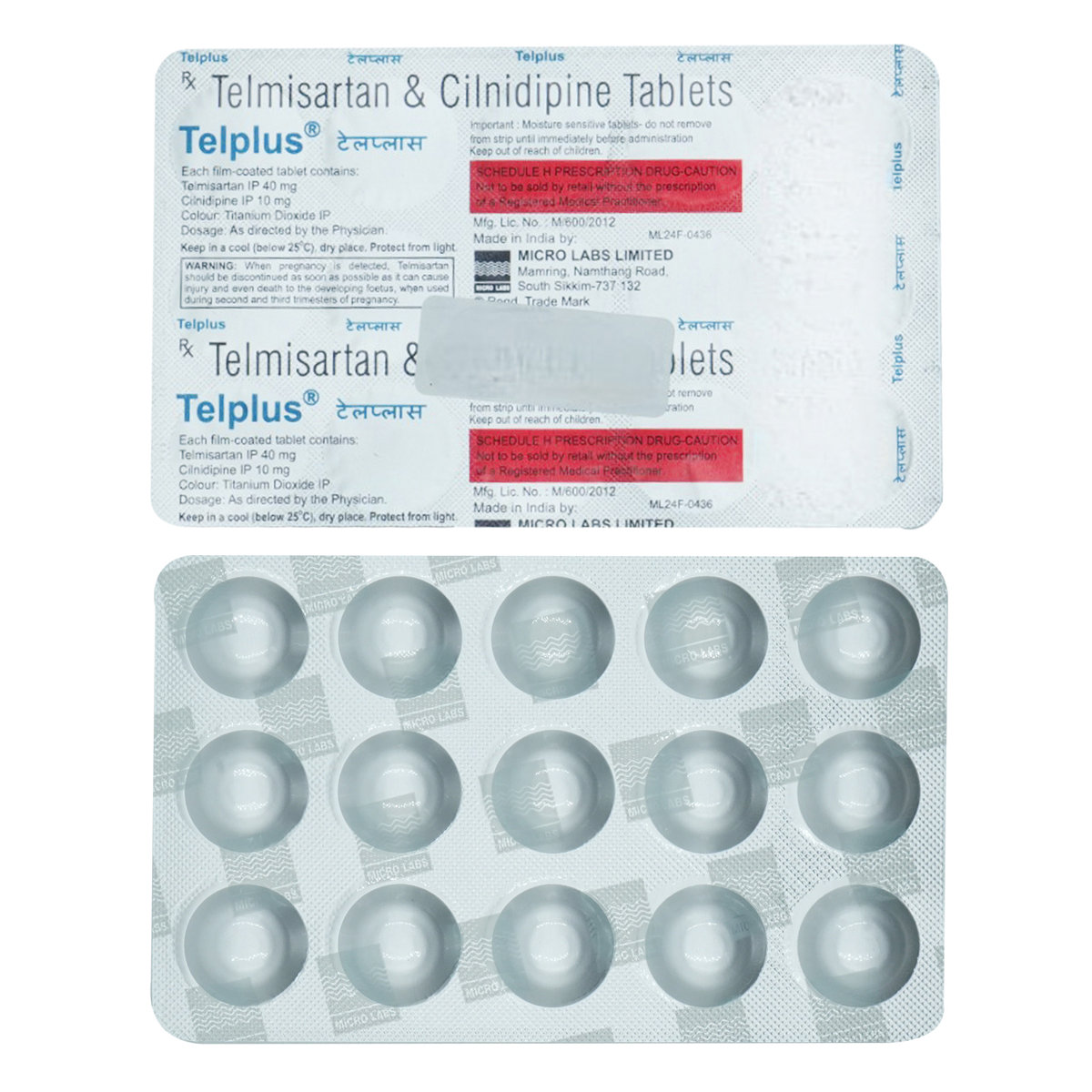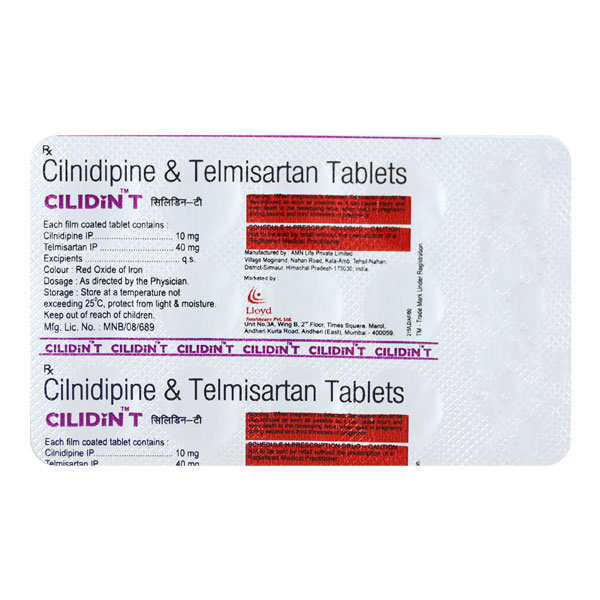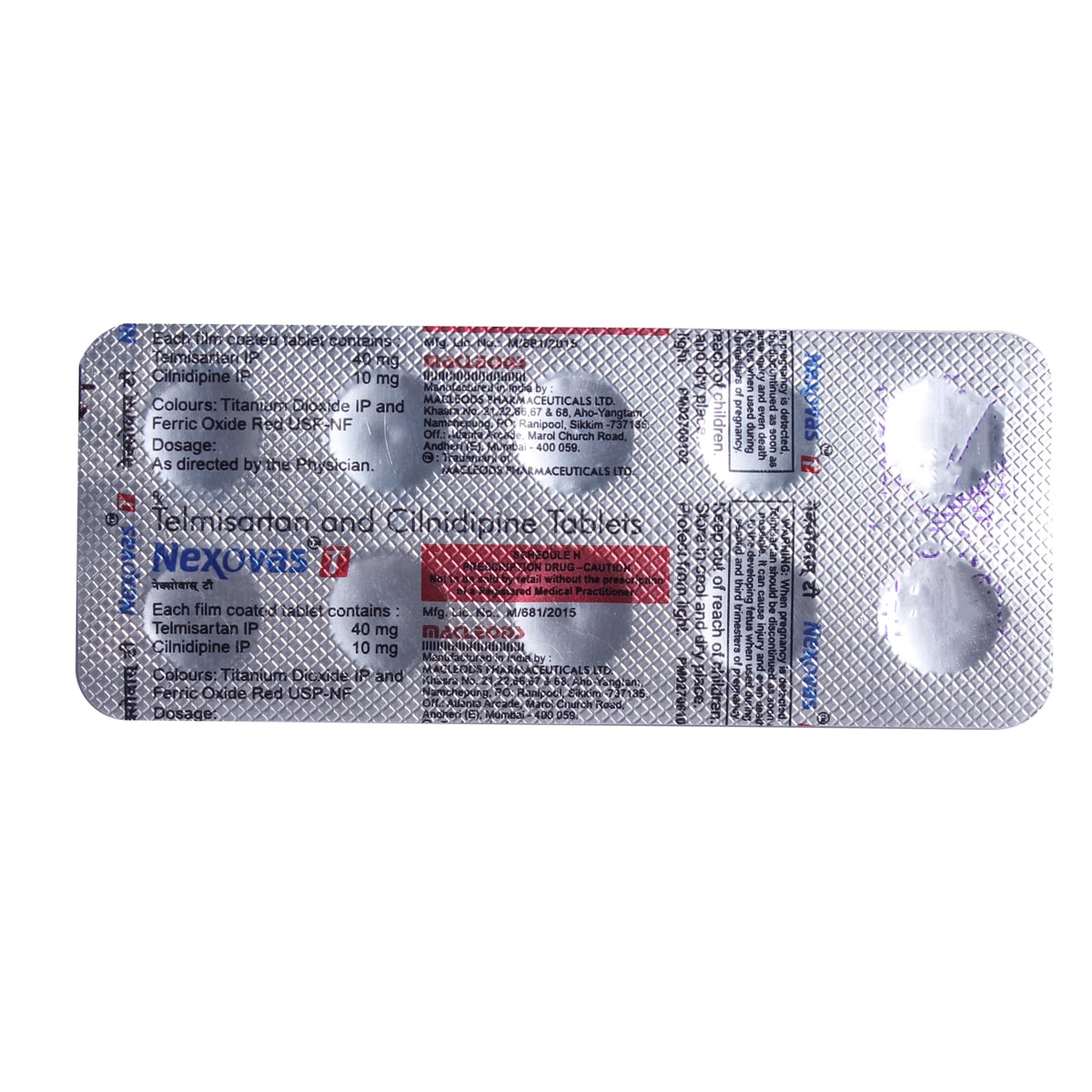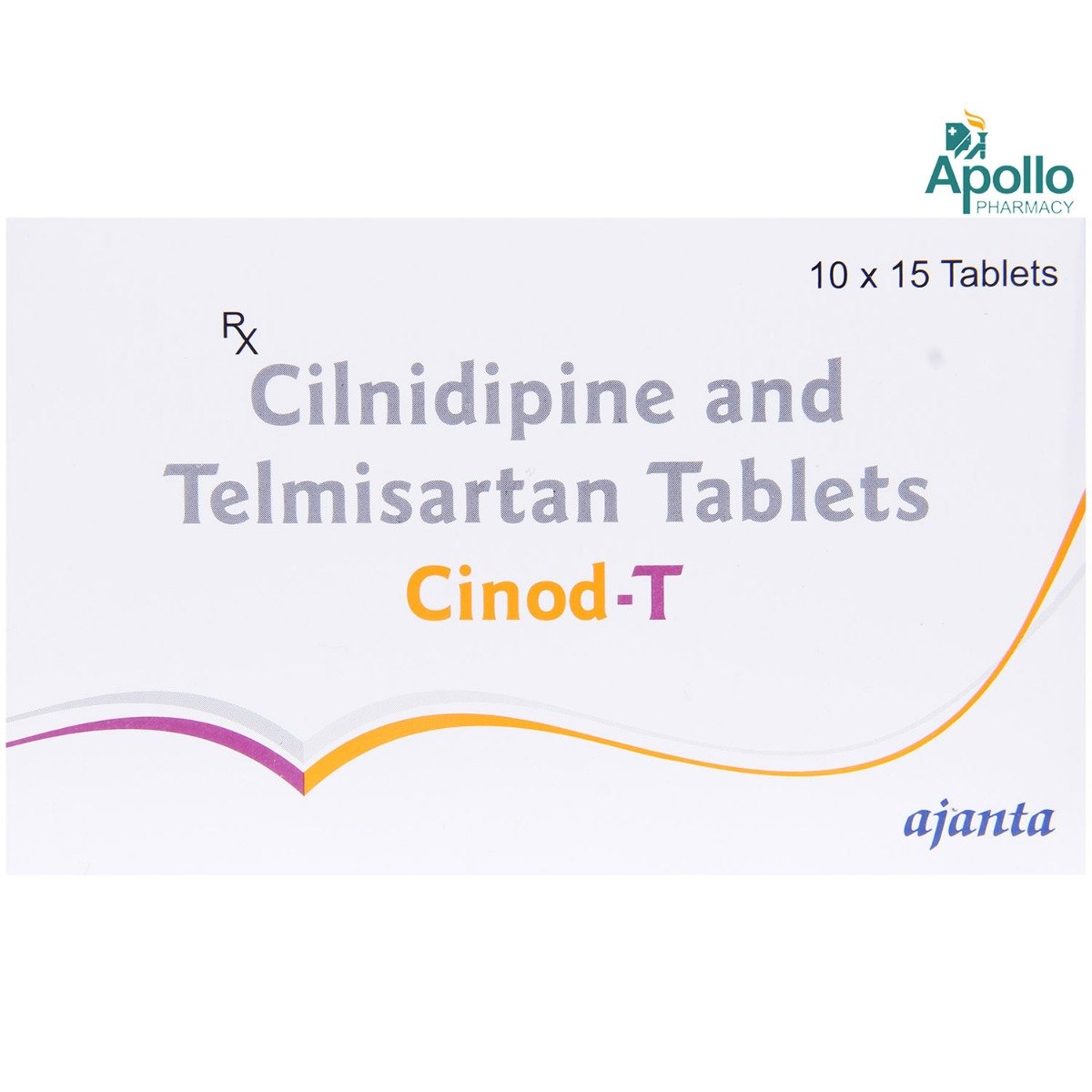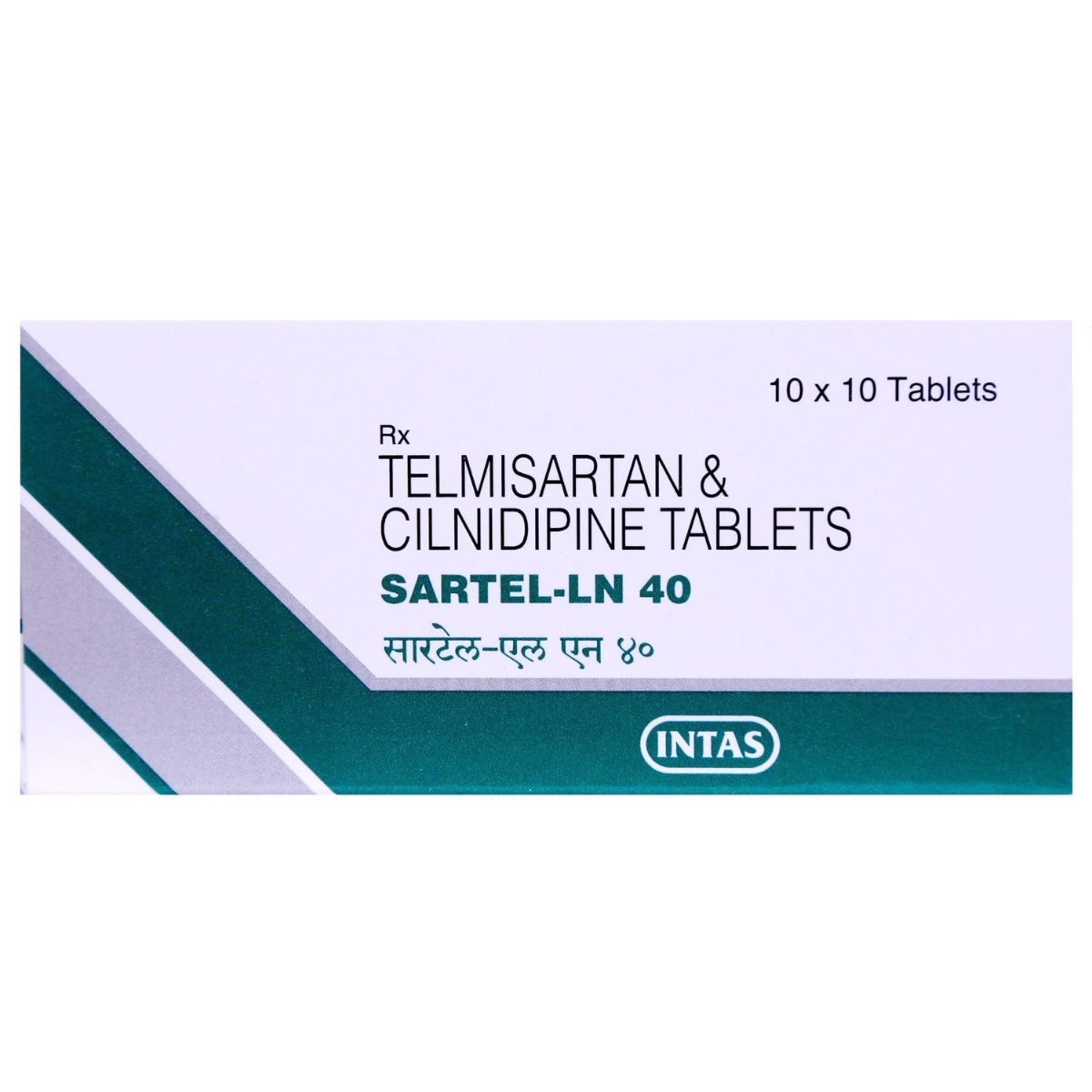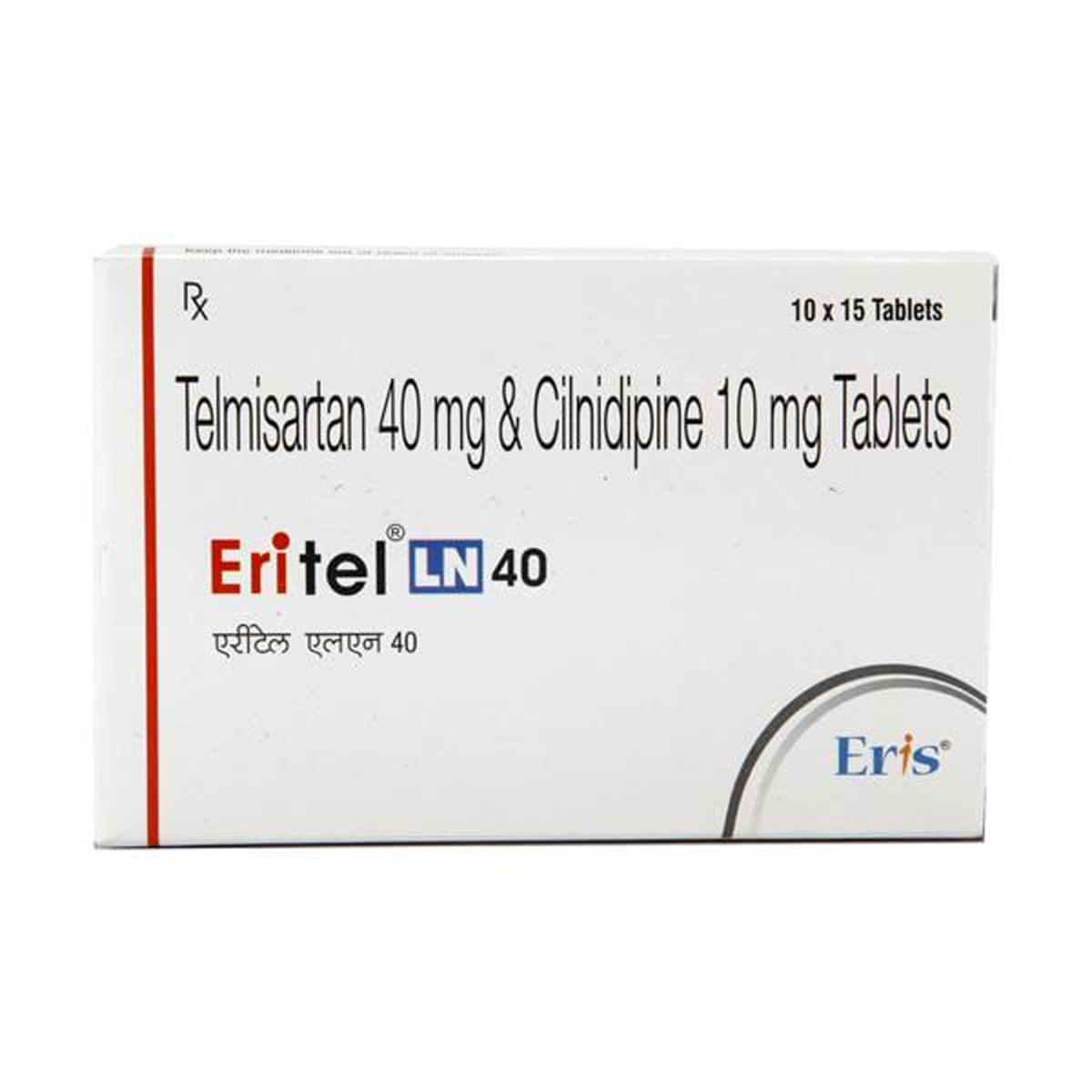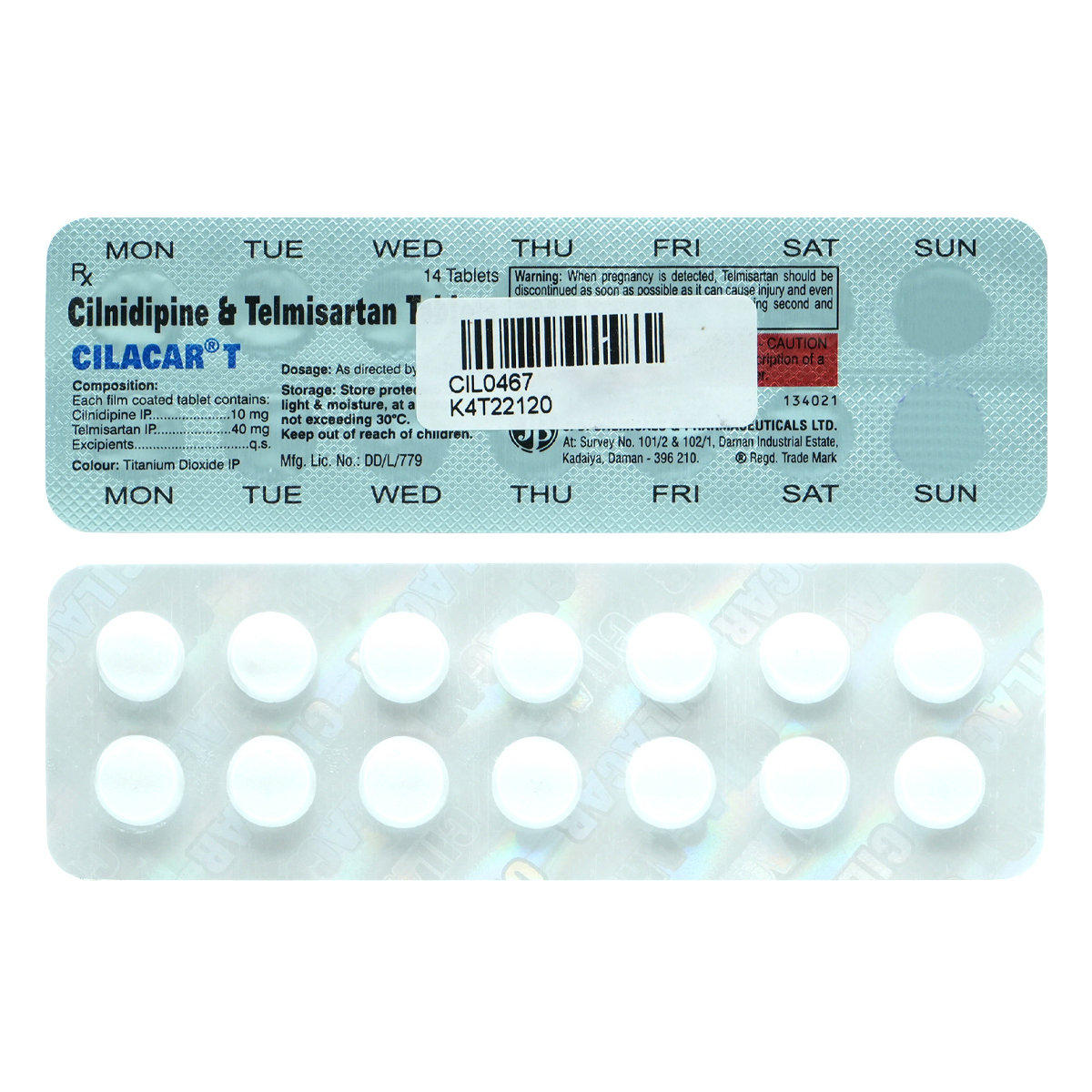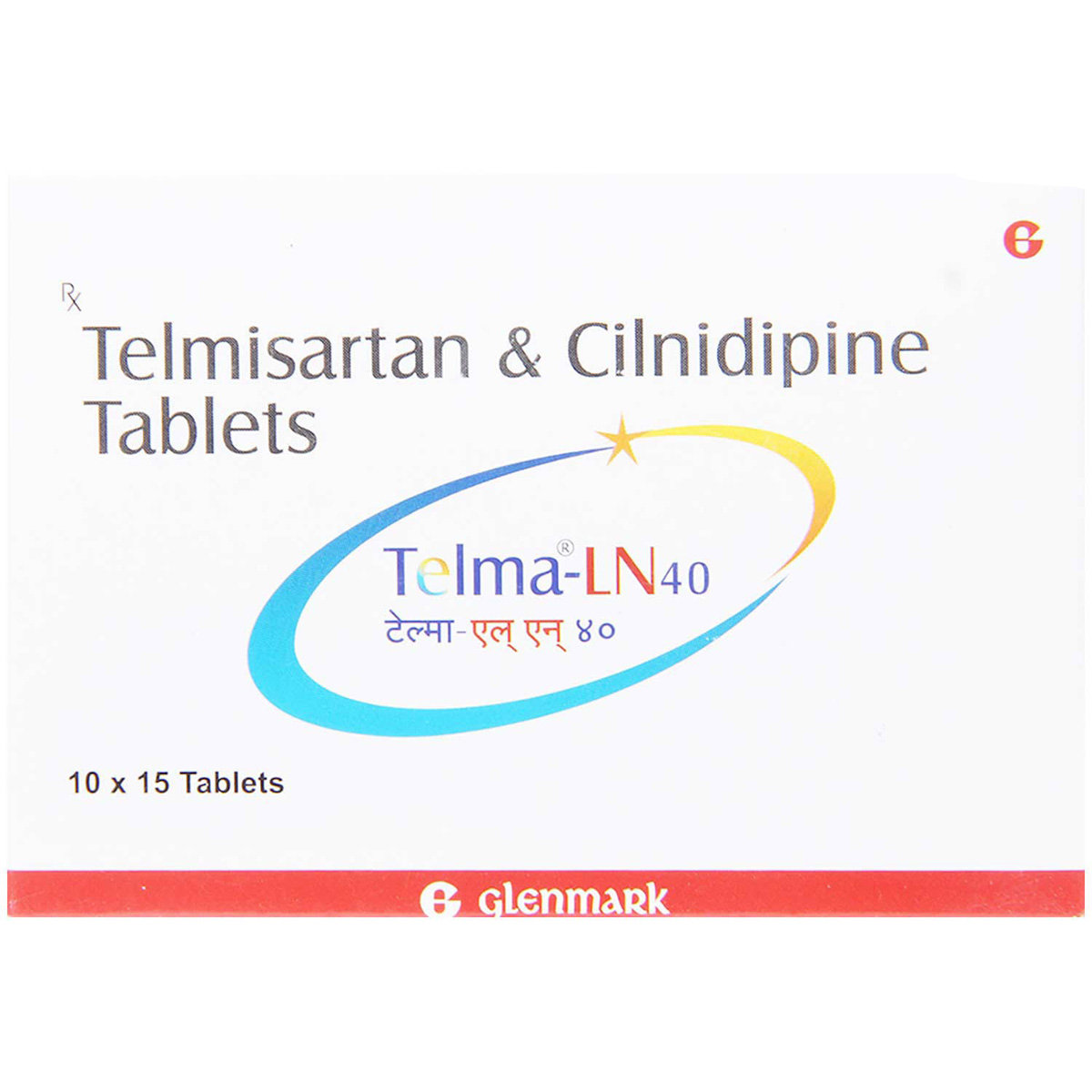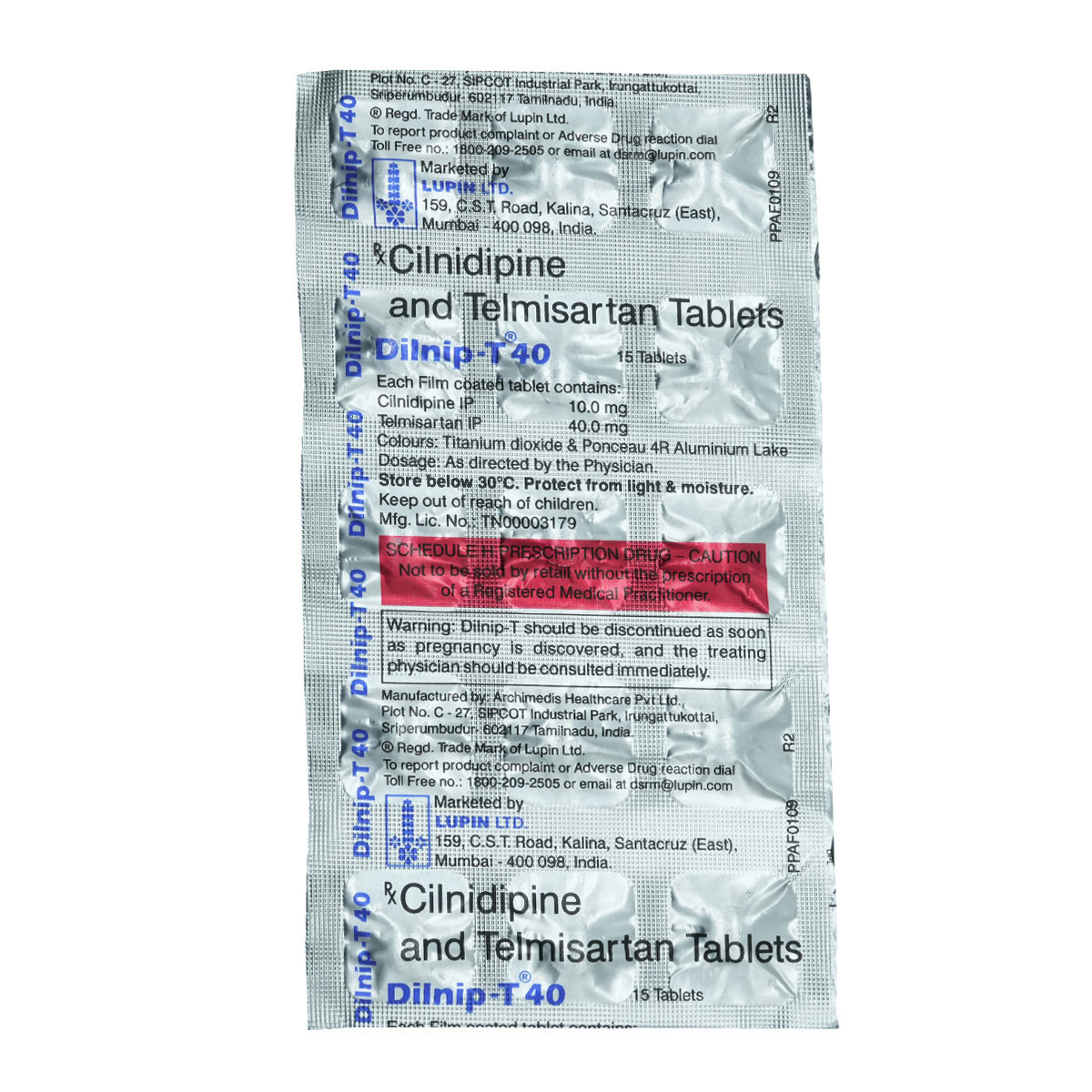Cilnicab-TM Tablet 10's
MRP ₹81.5
(Inclusive of all Taxes)
₹9.8 Cashback (12%)
Provide Delivery Location
Online payment accepted
 Prescription drug
Prescription drugWhats That
Composition :
Manufacturer/Marketer :
Consume Type :
Expires on or after :
Return Policy :
About Cilnicab-TM Tablet
Cilnicab-TM Tablet belongs to the class of anti-hypertensives primarily taken for the treatment of hypertension (high blood pressure) and heart-related chest pain (angina). It comprises of Cilnidipine (calcium channel blocker) and Telmisartan (angiotensin receptor blocker). Hypertension is a lifelong or chronic condition in which the force exerted by the blood against the artery walls becomes so high that it leads to heart diseases. Angina is chest pain caused by reduced blood flow to the heart.
Cilnicab-TM Tablet is composed of Cilnidipine and Telmisartan, prescribed to treat hypertension. Cilnidipine blocks the activities of the calcium channels present in the blood vessels of the heart. As a result, the blood vessels widen, and supply to the heart increases, lowering the elevated blood pressure and the workload placed on the heart. Telmisartan works by blocking the action of certain substances that are responsible for tightening the blood vessels. It allows the blood to flow more smoothly and makes the heart more efficient at pumping blood throughout the body. Thus, it reduces the chance of having any heart attack or stroke in the future.
You can take Cilnicab-TM Tablet with food or without food. It should be swallowed whole with a glass of water. Do not chew, bite, or break it. Your doctor will advise you how often you take your tablets based on your medical condition. Common side effects of Cilnicab-TM Tablet include sore back, diarrhoea, congested feeling, spinning sensation, soreness in the sinus. Most of these side effects of Cilnicab-TM Tablet do not require medical attention and gradually resolve over time. However, if the side effects are persistent, reach out to your doctor.
Don't stop taking Cilnicab-TM Tablet without your doctor advice. Sudden Stopping Cilnicab-TM Tablet may cause changes in your heart rhythm and blood pressure, cause chest pain, or a heart attack. Your doctor will lower your dose gradually over a period of time to help prevent these symptoms. It is advised to drink plenty of fluids while taking this medicine to overcome dry mouth and extreme thirst. Patients suffering from kidney problems may be required to undergo regular blood creatinine, and potassium levels test as Cilnicab-TM Tablet affects electrolytes level in our body can be monitored.
Uses of Cilnicab-TM Tablet
Directions for Use
Key Benefits
Cilnicab-TM Tablet is composed of Cilnidipine and Telmisartan, prescribed to treat hypertension. Cilnidipine blocks the activities of the calcium channels present in the blood vessels of the heart. As a result, the blood vessels widen, and supply to the heart increases, lowering the elevated blood pressure and the workload placed on the heart. Due to its calcium channel blocking nature it may be also prescribed for relieving the heart’s workload caused due to the heart attack or stroke. Telmisartan works by blocking the action of certain substances that are responsible for tightening the blood vessels. It allows the blood to flow more smoothly and makes the heart more efficient at pumping blood throughout the body. Thus, it reduces the chance of having any heart attack or stroke in the future. Additionally, it has a protective effect on the kidney, and in the condition of diabetes.
Storage
- Inform your doctor about the nausea and discuss possible alternatives to the medication or adjustments to the dosage.
- Divide your daily food intake into smaller, more frequent meals to reduce nausea.
- Opt for bland, easily digestible foods like crackers, toast, plain rice, bananas, and applesauce.
- Avoid certain foods that can trigger nausea, such as fatty, greasy, spicy, and smelly foods.
- Drink plenty of fluids, such as water, clear broth, or electrolyte-rich beverages like coconut water or sports drinks.
- Use ginger (tea, ale, or candies) to help relieve nausea.
- Get adequate rest and also avoid strenuous activities that can worsen nausea.
- Talk to your doctor about taking anti-nausea medication if your nausea is severe.
- Record when your nausea occurs, what triggers it, and what provides relief to help you identify patterns and manage your symptoms more effectively.
- If you experience low blood pressure symptoms like dizziness, lightheadedness, or fainting while taking medication, seek immediate medical attention.
- Make lifestyle modifications and adjust your medication regimen under medical guidance to manage low blood pressure.
- As your doctor advises, regularly check your blood pressure at home. Record your readings to detect any changes and share them with your doctor.
- Fluid intake plays a vital role in managing blood pressure by maintaining blood volume, regulating blood pressure, and supporting blood vessel function. Drinking enough fluids helps prevent dehydration, maintain electrolyte balance, and regulate fluid balance.
- Take regular breaks to sit or lie down if you need to stand for long periods.
- When lying down, elevate your head with extra pillows to help improve blood flow.
- Avoid heavy exercise or strenuous activities that can worsen low blood pressure.
- Wear compression socks as your doctor advises to enhance blood flow, reduce oedema, and control blood pressure.
- If symptoms persist or worsen, or if you have concerns about your condition, seek medical attention for personalized guidance and care.
- Avoid triggers like alcohol, caffeine, and energy drinks.
- Try relaxation techniques such as yoga, meditation, or deep breathing.
- Exercise regularly as it helps maintain heart health.
- Follow a nutritious and balanced diet.
- Inform your doctor about dizziness symptoms. They may adjust your medication regimen or prescribe additional medications to manage symptoms.
- Follow your doctor's instructions for taking medication, and take it at the same time every day to minimize dizziness.
- When standing up, do so slowly and carefully to avoid sudden dizziness.
- Avoid making sudden movements, such as turning or bending quickly, which can exacerbate dizziness.
- Drink plenty of water throughout the day to stay hydrated and help alleviate dizziness symptoms.
- If you're feeling dizzy, sit or lie down and rest until the dizziness passes.
- Track when dizziness occurs and any factors that may trigger it, and share this information with your doctor to help manage symptoms.
- Hydrate your body: Drink enough water to prevent dehydration and headaches.
- Calm Your Mind: Deep breathing and meditation can help you relax and relieve stress.
- Rest and Recharge: Sleep for 7-8 hours to reduce headache triggers.
- Take rest: lie down in a quiet, dark environment.
- Cold or warm compresses can help reduce tension.
- Stay Upright: Maintain good posture to keep symptoms from getting worse.
- To treat headaches naturally, try acupuncture or massage therapy.
- Over-the-counter pain relievers include acetaminophen and ibuprofen.
- Prescription Assistance: Speak with your doctor about more substantial drug alternatives.
- Severe Headaches: Seek emergency medical assistance for sudden, severe headaches.
- Frequent Headaches: If you get reoccurring headaches, consult your doctor.
- Headaches with Symptoms: Seek medical attention if your headaches include fever, disorientation, or weakness.
- Remember, managing depression as a side effect of medication requires patience, persistence, and collaboration with your healthcare team.
- Tell your doctor about your depression symptoms to adjust medication.
- Consult a therapist or counsel for emotional support.
- Engage in regular exercise to release endorphins (neurotransmitters).
- Practice stress-reducing techniques like meditation and deep breathing.
- Build a support network of friends, family, and support groups.
- Establish a consistent sleep schedule.
- Eat a nutritious diet rich in fruits, vegetables, and whole grains.
- Limit or avoid alcohol and recreational substances.
- Keep a mood journal to track symptoms and progress.
- Skin rash caused by allergies is due to irritants or allergens. Therefore, avoid contact with such irritants.
- Consult your doctor for proper medication and apply an anti-itch medication. Follow the schedule and use the medication whenever needed.
- Protect your skin from extreme heat and try to apply wet compresses.
- Soak in the cool bath, which gives a soothing impact to the affected area.
Drug Warnings
Cilnicab-TM Tablet should be taken with caution in patients with congestive heart failure, liver disease, peripheral oedema (swelling of hands/legs), cardiogenic shock (when heart suddenly can not pump sufficient blood), recent MI (myocardial infarction) or acute unstable angina (chest pain), severe aortic stenosis (when heart valves become diseased). You should monitor your blood pressure regularly to make sure the Cilnicab-TM Tablet is working efficiently. Besides this, prolonged intake of Cilnicab-TM Tablet can lead to lowering of blood pressure (hypotension). So, daily monitoring of blood pressure is advisable.
Drug-Drug Interactions
Drug-Drug Interactions
Login/Sign Up
Co-administration of Aliskiren with Cilnicab-TM Tablet can increase the risk of hyperkalemia (high potassium levels in the blood).
How to manage the interaction:
Taking Cilnicab-TM Tablet with Aliskiren can possibly lead to an interaction, please consult a doctor before taking it. Do not discontinue the medications without consulting a doctor.
Co-administration of Cilnicab-TM Tablet may significantly increase the blood levels of lithium.
How to manage the interaction:
Although there is a possible interaction, Cilnicab-TM Tablet can be taken with lithium if prescribed by the doctor. Consult the prescriber if you experience symptoms of lithium intoxication such as drowsiness, dizziness, confusion, loose stools, vomiting, muscle weakness, muscle incoordination, shaking of hands and legs, blurred vision, ringing in the ear, excessive thirst, or increased urination. Do not discontinue the medication without consulting a doctor.
Co-administration of Potassium acetate can make Cilnicab-TM Tablet more likely to cause high levels of potassium in the blood.
How to manage the interaction:
Although taking Potassium acetate and Cilnicab-TM Tablet together can evidently cause an interaction, it can be taken if your doctor has suggested it. Do not stop using any medications without a doctor's advice.
Taking ramipril with Cilnicab-TM Tablet may increase the risk of side effects such as low blood pressure, kidney function impairment, and high blood potassium.
How to manage the interaction:
Although there is a possible interaction, Cilnicab-TM Tablet can be taken with ramipril if prescribed by the doctor. Consult the prescriber if you experience symptoms of high potassium such as nausea, vomiting, weakness, confusion, tingling of the hands and feet, feelings of heaviness in the legs, a weak pulse, or a slow or irregular heartbeat. Maintain adequate fluid intake during treatment with these medications. Do not discontinue the medications without consulting a doctor.
Taking Potassium citrate with Cilnicab-TM Tablet together may increase potassium levels in the blood, which can lead to kidney failure, muscular paralysis, and abnormal heart rhythm.
How to manage the interaction:
Although taking Potassium citrate with Cilnicab-TM Tablet together can possibly result in an interaction, it can be taken if a doctor has advised it. However, consult the doctor if you experience nausea, vomiting, weakness, disorientation, tingling in your hands and feet, feelings of heaviness in your legs, a weak pulse, or a slow or irregular heartbeat. It is essential to maintain proper fluid intake while taking these medications. It is advised to reduce the intake of potassium-rich foods. Do not discontinue any medications without a doctor's advice.
Taking Potassium Iodide with Cilnicab-TM Tablet can make high levels of potassium in the blood more likely.
How to manage the interaction:
Although taking Potassium iodide and Cilnicab-TM Tablet together can evidently cause an interaction, it can be taken if your doctor has suggested it. Do not stop using any medications without a doctor's advice.
Taking lisinopril with Cilnicab-TM Tablet may increase the levels of potassium in blood.
How to manage the interaction:
Although there is a possible interaction, Cilnicab-TM Tablet can be taken with lisinopril if prescribed by the doctor. Consult the prescriber if you experience symptoms of high potassium such as nausea, vomiting, weakness, confusion, tingling of the hands and feet, feelings of heaviness in the legs, a weak pulse, or a slow or irregular heartbeat. Maintain adequate fluid intake during treatment with these medications.
Taking spironolactone with Cilnicab-TM Tablet may increase potassium levels in the blood.
How to manage the interaction:
Although there is a possible interaction, Cilnicab-TM Tablet can be taken with spironolactone if prescribed by the doctor. Consult the prescriber if you experience symptoms of high potassium such as nausea, vomiting, weakness, confusion, tingling of the hands and feet, feelings of heaviness in the legs, a weak pulse, or a slow or irregular heartbeat. Maintain adequate fluid intake during treatment with these medications. Do not discontinue the medications without consulting a doctor.
Coadministration of enalapril with Cilnicab-TM Tablet may increase the risk of hyperkalemia (high potassium levels in the blood), hypotension, syncope (fainting), and renal failure due to additive or synergistic effects. If you are elderly, dehydrated, or have a history of renal or heart illness, your risk is enhanced.
How to manage the interaction:
Although taking Enalapril together with Cilnicab-TM Tablet may possibly result in an interaction, they can be taken together if prescribed by your doctor. However, contact your doctor immediately if you experience signs and symptoms of hyperkalemia, such as nausea, vomiting, confusion, numbness, tingling in hands and feet, and irregular heartbeat. It is advised to limit the intake of potassium-rich foods like tomatoes, bananas, papayas, mangoes, beans, and potassium-containing supplements. Do not discontinue any medication without consulting your doctor.
Taking quinapril with Cilnicab-TM Tablet may increase the risk of side effects such as low blood pressure, kidney function impairment, and high blood potassium.
How to manage the interaction:
Although there is a possible interaction, Cilnicab-TM Tablet can be taken with quinapril if prescribed by the doctor. Consult the prescriber if you experience symptoms of high potassium, such as nausea, vomiting, weakness, confusion, tingling of the hands and feet, feelings of heaviness in the legs, a weak pulse, or a slow or irregular heartbeat. Maintain adequate fluid intake during treatment with these medications. Do not discontinue the medications without consulting a doctor.
Drug-Food Interactions
Drug-Food Interactions
Login/Sign Up
Diet & Lifestyle Advise
- Keep your weight under control with BMI 19.5-24.9.
- Do regular physical activity or exercise for at least 150 minutes per week, or about 30 minutes most days of the week. Doing this can help you to lower your raised blood pressure by about 5 mm of Hg.
- Opt for diet rich in whole grains, fruits, veggies and low-fat dairy products.
- Limit intake of sodium chloride (table salt) in your daily diet to 2300 mg per day or less than 1500 mg is ideal for most adults.
- If you are taking alcohol then only one serving for women and two servings for men is advisable.
- Quitting smoking is the best strategy to lower the risk of heart disease.
- Avoid chronic stress as it can raise your blood pressure. Try to enjoy and spent time with your loved ones to cope with stress and practice mindfulness techniques.
- Monitor your blood pressure daily and if there is too much of fluctuation then immediately contact your doctor.
- Try to include heart healthy omega 3 fatty acid containing food drinks in your daily diet. You can also use low fat cooking oil like olive oil, soybean oil, canola oil, and coconut oil can help in lowering your elevated blood pressure.
Side Effects of Cilnicab-TM Tablet
- Sore back
- Diarrhoea
- Congested feeling
- Spinning sensation
- Soreness in the sinus
Habit Forming
Therapeutic Class
All Substitutes & Brand Comparisons
RX
Telvas-LN 40 Tablet 10's
Aristo Pharmaceuticals Pvt Ltd
₹106.5
(₹9.59 per unit)
33% COSTLIERRX
Cortel LN Tablet 15's
Corona Remedies Pvt Ltd
₹163
(₹9.78 per unit)
36% COSTLIERRX
Telplus Tablet 15's
Micro Labs Ltd
₹175
(₹10.51 per unit)
46% COSTLIER
Drug-Diseases Interactions
Drug-Diseases Interactions
Login/Sign Up
FAQs
It is advised to continue your medicine even after your blood pressure is under control or becomes normal as blood pressure can shoot up any time. If you have persistent headache, please consult your doctor immediately.
If you miss a dose of Cilnicab-TM Tablet , you are advised to take it as soon as you remember. Do not double the dose as it may lead to lowering of blood pressure. Take one daily at the same time.
High blood pressure in the stage of pregnancy may cause eclampsia that can be harmful for both baby and mother. So, during the pregnancy you should have regular blood pressure monitoring.
No, it is a prescribed drug, given by a physician for preventing specific medical conditions. Taking it on your own can cause unwanted side-effects.
Yes, Cilnicab-TM Tablet can cause dizziness. It is advised to avoid driving or operate any heavy machinery while taking Cilnicab-TM Tablet . In case you feel dizzy or lightheaded, it is advised to rest for some time until you feel better.
Drug-Drug Interactions Checker List
- QUINIDINE
- PHENYTOIN
- RIFAMPICIN+ISONIAZID
- ERYTHROMYCIN
- LITHIUM
Special Advise
Sudden withdrawal may worsen angina (chest pain). However, if ou experience chest pain, consult your doctor immediately.
Disease/Condition Glossary
Blood pressure: It is the measurement of the force that our heart uses to pump blood to all parts of the body. Hypertension is a chronic condition when blood pressure is too high. This condition can lead to hardened arteries (blood vessels), decreasing the blood and oxygen flow to the heart. Raised blood pressure can cause chest pain (angina) and heart attack (when blood supply to the heart is blocked). Additionally, high blood pressure also causes brain damage (stroke) and kidney failure. High blood pressure can be diagnosed with the help of a blood pressure monitor or sphygmomanometer. Systolic pressure is the pressure when the heart pumps blood out. On the other hand, diastolic pressure is the pressure when your heart is at the resting stage between heartbeats. If your blood pressure is 140/90 mm of Hg, it means the systolic pressure is 140 mm of Hg and, diastolic pressure is 90 mm of Hg. Ideal blood pressure should be between 90/60 mm of Hg and 120/80 mm of Hg.

Have a query?
Alcohol
Safe if prescribed
Cilnicab-TM Tablet can lower your blood pressure causing dizziness and drowsiness. It can also cause orthostatic hypotension (sudden fall in blood pressure while standing). So try to avoid intake of Cilnicab-TM Tablet with alcoholic beverages.
Pregnancy
Consult your doctor
There are no clinical data on the safety of Cilnicab-TM Tablet during pregnancy. So, it should be taken with caution.
Breast Feeding
Consult your doctor
Nursing mother should consult doctor before taking Cilnicab-TM Tablet .
Driving
Safe if prescribed
Cilnicab-TM Tablet may cause side effects which could affect your ability to drive. Taking Cilnicab-TM Tablet may lower your blood pressure
Liver
Consult your doctor
There is limited information available on the use of Cilnicab-TM Tablet in patients with liver disease. So Cilnicab-TM Tablet should be taken with caution and with consultation to doctor only.
Kidney
Consult your doctor
Cilnicab-TM Tablet is probably safe to use in patients with kidney disease. It has shown beneficial and protective effect on the kidney.
Children
Safe if prescribed
The safety and effectiveness of Cilnicab-TM Tablet has not been established in children due to limited testing of this drug on children by competent authorities across the world. Hence, it is best to consult a child specialist.
Recommended for a 30-day course: 3 Strips

